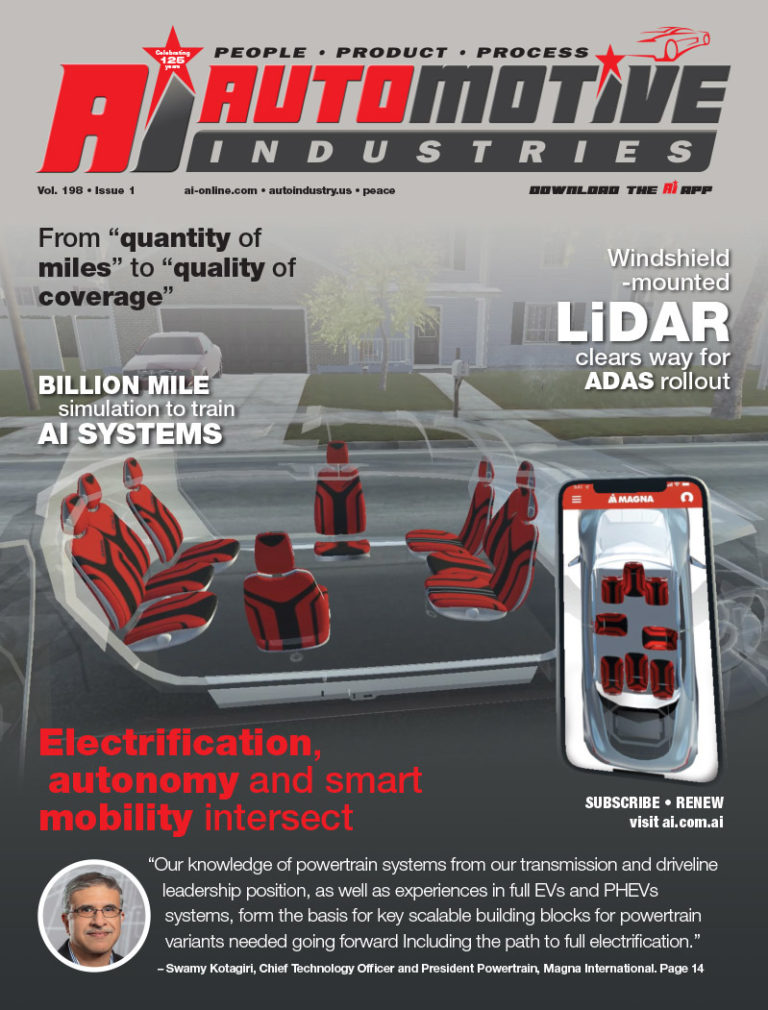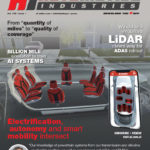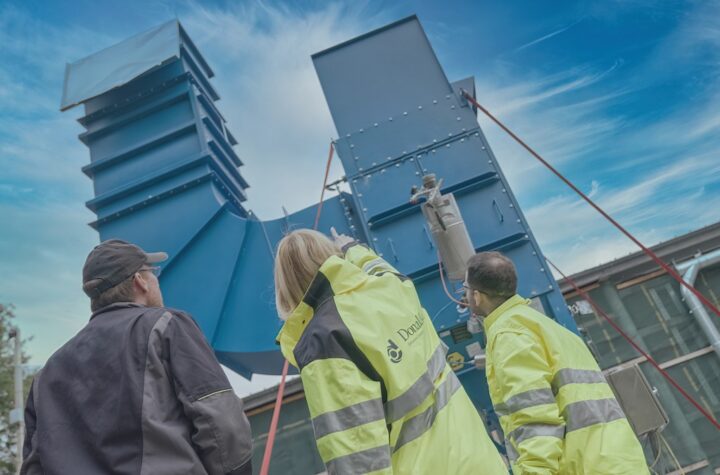
The Republic of Macedonia has become an emerging hub for automotive components producers. Investment is being attracted by the country’s proximity to automotive plants in Central Europe and Turkey, as well as its infrastructure. The geographical proximity of these markets coupled with cost-efficient logistics allows low distribution costs and “just-in-time” product delivery from Macedonia.
Automotive Industries (AI) asked Visar Fida, CEO, Agency for Foreign Investments & Export Promotion of the Republic of Macedonia, why the country is attracting FDI from automotive OEMs even in a dull economic climate.
Fida: Macedonia is a macro-economically and fiscally stable, rapidly growing, and forward-looking country. It is positioned strategically close to the European Union, Central Europe and Turkey. The association agreement with the European Union, EFTA and CEFTA, as well as the free trade agreements with Turkey and the Ukraine enable free access to a market of more than 650 million consumers.
Macedonia also boasts availability of highly educated young people with advanced language skills and strong work ethic at a competitive price. Part of the general incentives package is the flat tax rate of 10% on corporate and personal income and 0% tax rate on reinvested profit. As a result of a regulatory overhaul starting a business in Macedonia can be done in only four hours for a cost of €42. Overall, the business climate is blooming, and the incentives package is unmatched. Very importantly, Macedonia is managed by a government dedicated to meeting the needs of the foreign investors.
AI: What are some of the governmental initiatives in promoting the sector?
Fida: The whole government is focused on the process of advancing Macedonia as a business destination and in promoting its potential. Reforms are ongoing to further improve the business climate in Macedonia. Our product is continuously getting better. Our government is constantly organizing roadshows to numerous countries worldwide, where they present the excellent climate for investing in Macedonia. There is also a network of 30 economic promoters around the world.
AI: What role do your special economic zones play in promoting automotive investments?
Fida: The government has set up four technological-industrial development zones (free economic zones) or TIDZs offering special incentives. TIDZs are centers in which highly productive clean manufacturing activities are concentrated and new technologies are developed. Currently, the four TIDZs (two in Skopje, one in Stip and one in Tetovo), together have over 400 hectares of available industrial land. Additional zones are being constructed in Kicevo, Gevgelija and Prilep, and there are also four other zones planned to be developed in near future: TIDZ Strumica, TIDZ Rankovce; TIDZ Struga, and TIDZ Radovis.
AI: What makes the TIDZs attractive?
Fida: Macedonia offers a number of incentives in addition to those normally associated with free economic zones. Investors in TIDZs are entitled to personal and corporate income tax exemption for the first 10 years. Investors are exempt from payment of value added tax and customs duties for goods, raw materials, equipment and machines. Moreover, up to €500.000 can be granted as incentive towards building costs depending on the value of the investment and the number of employees. Land in a TIDZ in Macedonia is available under long-term lease for a period of up to 99 years. Other benefits include completed infrastructure that enables connection to natural gas (in Skopje), water, electricity and access to a main international road network. Investors are also exempt from paying a fee for preparation of the construction site. Fast procedures for business activity registration are provided in TIDZ that further reduce the costs of setting up.
AI: What makes Macedonia an attractive option for investors from countries like China?
Fida: Macedonia has a history of auto component manufacturing. In a recent privatization process, a number of companies have been bought by overseas investors and continue to produce a range of components for cars, busses, trucks and locomotives. Macedonia offers a particularly cost-competitive operating environment. The labor force is well educated, flexible and has a strong work ethic. The educational system is willing to collaborate with investors to find ways to meet their skills needs, as demonstrated by one of the major universities training 165 students in Java and C++ for Johnson Controls, which has constructed a US$40 million facility outside Skopje.
Moreover, there are no customs duties for importing raw materials and equipment and all the final products from Macedonia can be delivered duty free to all European countries plus Turkey and Ukraine (market of 650 million people). Significant recent foreign investors include Johnson Matthey (UK), Mobilkom Austria (Austria), EVN (Austria), Deutsche Telecom (Germany), Kromberg & Schubert (Germany), Dräxlmaier Group (Germany), Van Hool (Belgium), Societe Generale (France), Johnson Controls (USA), KEMET Corporation (USA), the National Bank of Greece (Greece), Hellenic Bottling Company S.A. (Greece), QBE Insurance Group Limited (United Kingdom), Mittal Steel (Netherlands), Duferco (Switzerland), and Titan Group (Greece).
AI asked Dejan Velickov, Head of the International office, Agency for Foreign Investments & Export Promotion of the Republic of Macedonia how much investment into Macedonia was growing.
Velickov: Despite the economic downturn in Europe the foreign investments in Macedonia are growing steadily and by the end of the second trimester in 2013 we have US$133 million in foreign investment compared to 2012 when we had US$89 m for the whole year. The automotive industry accounted for 20-30% of the manufacturing investments over the past year.
AI: What are some of the events your organization is planning to further push the country as an attractive investment destination for automotive manufacturers?
Velickov: We are planning to attend all the major automotive conferences and events in the United States and Europe as exhibitors with promotional stands. We use these events to approach executives from the industry to learn more about the opportunities offered in Macedonia. For many of them the first reaction is “no way, too good to be true” but after they hear about the experiences of the global automotive companies who are already in Macedonia they put Macedonia on the map for future projects.
AI: What gives Macedonia an edge over other Western Balkan nations – who incidentally, have suffered due to the economic slowdown in Europe?
Velickov: Macedonia has the best business climate from all the countries in the Western Balkans. The World Bank “Ease of Doing Business Report” has ranked Macedonia among the best reformer countries in the world for the past six to seven years. In 2013 Macedonia was ranked 23rd out of 180 countries globally. We are champions in our region in terms of business friendly environment and Macedonia scores better than the majority of EU countries. Macedonia is one of the lowest debt countries in Europe, which gives the country an advantage when discussing financial aid packages with potential investors. Last, but not least, we are a small country, with a small very pro-business government which is very flexible and willing to assist and help investors in any possible way.
AI: Where do you see future automotive investments coming from?
Velickov: We expect projects from American companies in the near future, and also from Germany and India. Lately we have seen a trend for Chinese automotive companies to look at Macedonia as a manufacturing hub and gateway into the European automotive market.














































 Revving up the South Carolina auto industry
Revving up the South Carolina auto industry


